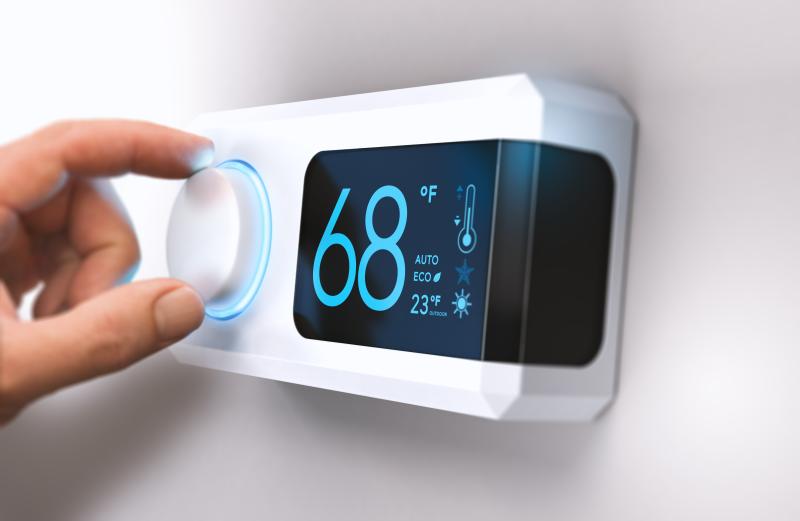A state Senate committee hearing Feb. 14, on the spike in Delmarva Power electric bills in January spun into a debate on renewable energy and demands from customers that the utility do more to help people struggling under the weight of hefty bills.
During the meeting of the Environment, Energy and Transportation Committee, Delmarva Power Regional President Phil Vavala attributed the increase to colder-than-usual temperatures.
More than 50 people spoke at the hearing. Some complained about the Delmarva’s profit margin of nearly 10%; some spoke for or against renewable energy; others insisted that more be done to help customers burdened by the high electric bills
“There is no competition in order to drive down prices for the consumers,” said Mark Durbano, calling for an anti-trust case to be brought against the utility. “There is no incentive for Delmarva to increase its efficiency or decrease rates.”
“I have to choose between feeding my family and keeping the lights on,” Nadine Chance said. “Something has to change.”
Vavala said individual bills are affected by many factors, such as how much insulation a building has, a customer’s power-use habits and some heating systems that require a lot of power to operate during extreme cold weather.
Temperatures in January were 4 to 5 degrees colder than the previous month. Electricity usage on average has increased sharply as the winter months set in, rising 40% from November to December and an additional 23% from December to January. The average usage for January was 6% higher than the same month a year ago.
A recent change in Delmarva Power bills – which for the first time broke out the cost of delivering the power – gave some the impression there was a new delivery cost, Vavala said. In the past, bills only included a single figure for the total cost for DP to buy power on the market and deliver it to customers.
“There are no new charges on the bill,” he said. “Delivery and supply were always on the bill.”
Sen Eric Buckson, R-Camden, pressed Vavala on whether the state’s energy policy, which emphasizes significant increases of renewable energy, contributed to the higher bills. Buckson said unrealistic goals for renewable energy production, including solar and wind power, were a factor in the higher bills.
“There is a direct correlation between those actions and the scarcity we have in delivering energy,” he said, adding the state’s goals are unrealistic.
Vavala said the state’s renewable energy goals were not a factor in the higher electric bills. Buckson did not appear to be satisfied that the answer told the entire story.
Committee Chair Sen. Stephanie Hansen, D-Middletown, said she broke down the costs of an electric bill and found, as Vavala had, that a big increase in usage was clearly the main reason for the higher bills.
“It’s that jump that’s got people exercised,” Hansen said. “We have to concentrate on bringing down the big cost drivers on energy bills.”
Buckson and Hansen agreed that renewable energy was not being created fast enough to meet demand as older coal power plants are being decommissioned, but they disagreed on how to deal with the shortfall. Buckson said the state is moving too quickly toward renewable energy, while Hansen said it is not moving quickly enough.
“If we had more renewables, it would bring down costs, but this is scarce,” Hansen said. “That is the responsible thing to do.”
“It created a timeline that was not realistic,” Buckson said.
“We can’t put all our eggs into one basket,” Sen. Brian Pettyjohn, R-Georgetown, said of renewable energy, calling for consideration of nuclear and coal power plants as part of a more reliable mix of sources.
Pettyjohn said offshore wind power has faced opposition and solar farms require a great deal of land to meet power demands.
“That capacity is not there yet,” he said. “There are a number of factors.”
Mandates placed on utilities have been increasing costs for consumers, Pettyjohn said.
Customers can adjust their energy-use patterns to help lower their bills, said Vavala, who encouraged customers to contact the company about suggestions on how to do that, and the availability of programs to spread out costs and help pay bills.
“I cannot stress enough our personal commitment to our customers to work through this,” he said. “We are taking steps to help our customers and we are here to help.”
Two weeks ago, the utility announced it had suspended disconnections for nonpayment next month, and there will be no late payment fees for January and February this year. Repayment periods were extended up to 24 months, and fees to restore service after a disconnection will be waived.






















































